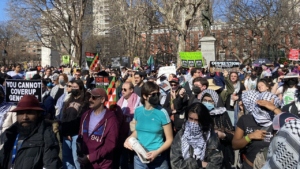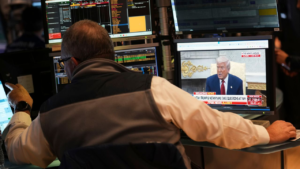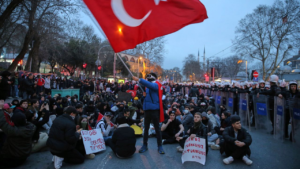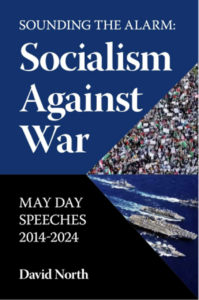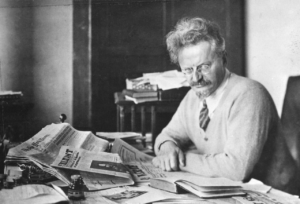Statement of the WSWS International Editorial Board
We post below the First Part of the Statement of the World Socialist Web Site International Editorial Board, published in WSWS.org on January 03, 2024. The statement contains four parts. Please access here Part Two, Part Three and Part Four. We, theSocialist.LK endorse this statement in its entirety and invite our readers to carefully peruse it and grasp it for actions ahead.
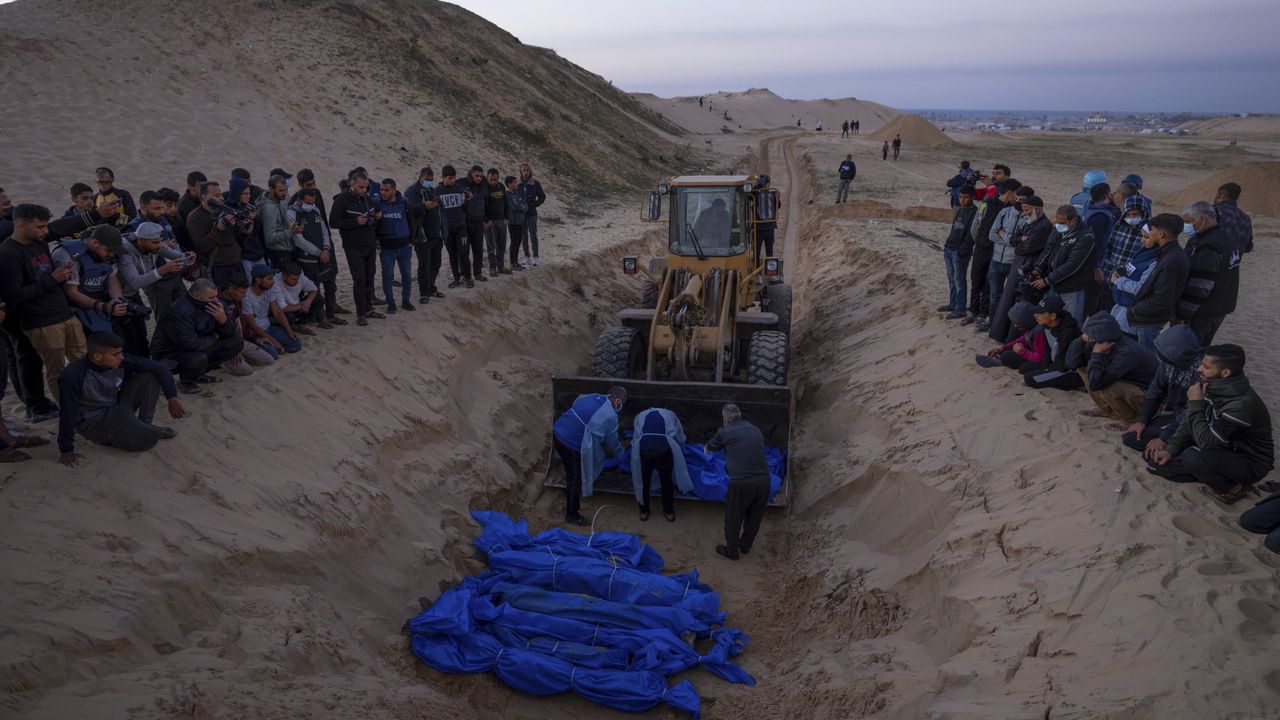
1. New Year 2024 begins under conditions of escalating international crisis. At the dawn of the millennium, there were rosy predictions that world capitalism, under the benevolent and “unipolar” rule of the United States, was entering a new epoch of universal peace and prosperity. With the dissolution of the Soviet Union, the demons of the “short twentieth century”—above all, the specters of Marxism and socialist revolution—had been buried for once and for all. Wall Street cried out to the world: “My name is Capitalism, King of Kings. Look on my works ye Mighty and despair!” But it has taken less than a quarter-century to dissolve that arrogant boast into a colossal wreck. The new century of triumphant capitalism has proven to be the shortest of all. The fundamental contradictions of the world capitalist system that produced the wars and revolutions of the twentieth century have not been resolved and remain the driving forces of the intensifying economic, social and political upheavals that are sweeping across the globe.
2. The horrors produced by the cataclysms of the past century are being reenacted. Genocide is being openly adopted as an instrument of state policy. The attempt by the Israeli regime to exterminate the Palestinian people in Gaza proceeds with the open endorsement of the United States and its imperialist allies, which have repeatedly proclaimed their opposition to a cease-fire. A densely populated urban area is being subjected to a merciless bombardment that has killed more than 25,000 people, mostly women and children, within the first 10 weeks of the war.
3. The fascist prime minister of Israel, Benjamin Netanyahu, declared in his New Year’s message that the onslaught will continue throughout 2024. Israel could not continue the war another week, let alone a year, without the unlimited financial and military support of the United States and its NATO co-criminals. The US president, secretary of state, countless other high government officials and top Pentagon personnel shuttle back and forth between Washington and Tel Aviv, overseeing the Israeli operations and participating in the selection of bombing targets. It is an open secret that US and NATO personnel are directly involved in murderous actions on the ground within Gaza.
4. The sanctioning of and participation in genocide represent more than the imperialist powers’ usual violations of their invocations of human rights. The Gaza genocide confirms, on a higher level, a tendency first noted by Lenin in the midst of World War I, more than a century ago. He wrote in 1916 that “the difference between the democratic-republican and the reactionary-monarchist imperialist bourgeoisie is obliterated because they are both rotting alive…” Substitute the term “fascist” for “reactionary-monarchist” and Lenin’s analysis is entirely valid as a description of present-day imperialist regimes.
5. The Gaza genocide is not a unique episode, best understood as a product of exceptional circumstances related to the Israel-Palestinian conflict and the inherently reactionary character of the Zionist project and its racialist and xenophobic-nationalist ideology. The latter elements play, of course, a significant role in the actions of the Israeli regime. But the unrestrained ferocity of the present war, carried out with the full support of its imperialist paymasters and weapons suppliers, can be understood and explained only in the context of the breakdown of the world imperialist and nation-state system.
6. The fundamental “error” of the strategists of American imperialism in the aftermath of the dissolution of the Soviet Union was that the event was explained in purely ideological terms, that is, as the triumph of capitalist “free enterprise” over socialist “dictatorship.” But this explanation, based on the false identification of Stalinism with socialism, concealed the real cause of the breakdown of the Soviet Union and its implications for the future development of American and world imperialism.
7. Notwithstanding its tragic consequences, the dissolution of the USSR confirmed the essential Marxist-Trotskyist critique of the Stalinist policy of “socialism in one country.” The reactionary nationalist utopia of an isolated socialist state fell victim, as Trotsky had predicted, to the reality of world economy.
8. The end of the USSR provided the United States a short-term advantage over its rivals, which its propagandists dubbed the “unipolar moment.” But the fundamental contradiction that led to the two world wars of the twentieth century—the conflict between the objective reality of a highly integrated world economy and the persistence of the obsolete nation-state system—had not been resolved by the demise of the USSR and its satellite regimes in Eastern Europe.
9. The United States sought to exploit its geopolitical advantage to achieve a level of global domination that had been denied to it in the aftermath of World War II as a consequence of the decisive role played by the Soviet Union in the defeat of Nazi Germany and the post-World War II wave of anti-colonial mass movements. Washington convinced itself that it could finally reorganize the world economy under its control through its military power. US imperialism’s favorite pundit, Thomas Friedman of the New York Times, proclaimed in 1999 that “the hidden fist that keeps the world safe for Silicon Valley’s technologies is called the United States Army, Air Force, Navy and Marine Corps…”[1]
10. The endless series of wars launched by the United States—in the Balkans, the Middle East and Central Asia—was a desperate attempt to maintain its dominant position, despite its overall economic decline. The International Committee explained the motivation for the 2003 invasion of Iraq and foresaw the failure of its underlying hegemonic project:
The launching of an aggressive war against Iraq represents a final, climactic attempt to resolve, on the basis of imperialism, the world historic problem of the contradiction between the global character of the productive forces and the archaic nation-state system. America proposes to overcome the problem by establishing itself as the super nation-state, functioning as the ultimate arbiter of the world’s fate—deciding how the resources of the world will be allocated, after it has grabbed for itself the lion’s share. But this sort of imperialist solution to the underlying contradictions of world capitalism, which was utterly reactionary in 1914, has not improved with age. Indeed, the sheer scale of world economic development in the course of the twentieth century endows such an imperialist project with an element of madness. Any attempt to establish the supremacy of a single national state is incompatible with the extraordinary level of international economic integration. The profoundly reactionary character of such a project is expressed in the barbaric methods that are required for its realization.[2]
11. The Gaza genocide epitomizes the “barbaric methods” arising from the increasingly desperate and beleaguered effort of the United States and its NATO allies to sustain their dominant position in the face of the challenge posed to their hegemony by China and recalcitrant national states whose interests conflict with Washington’s “rules-based” imperialist order. The slaughter of the Palestinians is unfolding in the midst of the bloody US-NATO proxy war against Russia, which has cost since its outbreak in February 2022 approximately a half-million Ukrainian and, at least, 100,000 Russian lives.
12. As the war in Gaza has normalized genocide as an acceptable instrument of imperialist policy, the relentless escalation of the US-NATO war against Russia has been accompanied by the de facto acceptance of a high level of possibility, even probability, that the conflict may lead to the use of tactical and strategic nuclear weapons. The Biden administration regularly sanctions and directs military attacks on Russian assets and territory that would have been ruled out during the Cold War as inciting nuclear retaliation. Repeatedly crossing “red lines,” the Biden administration and its allied NATO governments have asserted that their conduct of military operations will not be constrained by the threat of nuclear war.
13. Despite bleeding Ukraine white, US-NATO imperialism has failed thus far to achieve victory on the battlefield. Its much vaunted “spring offensive” in mid-2023 ended in a debacle. In the final days of 2023, the Ukrainian regime carried out a significant escalation of the war by launching a missile attack on Russian soil, killing at least 22 people in the city of Belgorod. Russia has responded with a new wave of missile attacks on Ukraine, which the Biden administration is exploiting to press its demands for continued unlimited funding of the proxy war.
14. In the final analysis, the US-NATO instigation of the proxy war in Ukraine marks nothing less than preparation for a US war against China, transforming every part of the world into a specific sphere of operations. Nearly 20 years ago, in 2006, the International Committee posed a series of questions related to the global policies of the United States, among which were the following:
Will the United States be prepared to retreat from its hegemonic aspirations and accept a more egalitarian distribution of global power among states? Will it be prepared to yield ground, on the basis of compromise and concessions, to economic and potential military competitors, whether in Europe or in Asia? Will the United States graciously and peacefully accommodate the rising influence of China?[3]
Responding to these questions, the ICFI replied that those who would answer in the affirmative “are placing heavy bets against the lessons of history.”
15. Today, the answers to these questions are not of a speculative character. War between the United States and China is viewed not as a possibility, but as an inevitability. This consensus within Washington’s foreign policy establishment is summed up in an essay published in the new January-February 2024 issue of Foreign Affairs. It is ominously titled, “The Big One: Preparing for a Long War With China.” Its author is Andrew J. Krepinevich, Jr., a senior fellow at the Hudson Institute, a leading imperialist think tank.
16. The essay assumes that the United States and China will go to war. It is a fact taken for granted, about which one should not waste time debating. The real questions relate to how and where the war will start—in the Taiwan Strait, the Korean Peninsula, along the Sino-Indian border, or in South Asia—and whether the war will go nuclear. Krepinevich states:
Once a war has broken out, both China and the United States would have to confront the dangers posed by their nuclear arsenals. As in peacetime, the two sides would retain a strong interest in avoiding catastrophic escalation. Even so, in the heat of war, such a possibility cannot be eliminated. Both would confront the challenge of finding the sweet spot in which they could employ the force to gain an advantage without causing total war. Consequently, leaders of both great powers would need to exercise a high degree of self-control.
To keep the war limited, both Washington and Beijing would need to recognize each other’s redlines—specific actions viewed as escalatory and that could trigger counterescalations.[4]
17. It is nothing less than delusional to stake one’s hope for an avoidance of nuclear Armageddon on the ability to limit escalation in the midst of an existential conflict upon which the fates of the combatants depend. In any case, the US-NATO proxy war against Russia has already established that US imperialism will not be deterred by the threat of nuclear retaliation and will cross all and every “red line” in order to achieve its objectives.
18. Krepinevich acknowledges that the inevitable US-China war, even without the use of nuclear weapons, will have catastrophic consequences for all of humanity. He writes:
Even if the two sides avoided nuclear catastrophe, and even if the homelands of the United States and its major coalition partners were left partially untouched, the scale and scope of destruction would likely far exceed anything the American people and those of its allies have experienced.[5]
19. The conclusion drawn by Krepinevich is not that the military cataclysm must be prevented at all costs, but that the United States-led coalition’s “ability to sustain popular support for the war effort, along with a willingness to sacrifice, would be crucial to its success.”[6]
20. This nightmarish imperialist scenario of inevitable war must be opposed by the American and international working class. Workers in the imperialist centers of North America, Europe, Asia and Australia and New Zealand have absolutely no interest in defending the global geopolitical and economic interests of their power-mad financial-corporate imperialist ruling class. Nor should the workers of Russia, China and other major capitalist regional powers—Brazil, Argentina, Egypt, the Gulf States, Turkey, Nigeria, South Africa, India, Indonesia, to name only the most significant—attribute any progressive character to the reactionary efforts to reorganize world geopolitics on the basis of the utopian perspective of multi-polarity.
21. The fact that US imperialism instigated the Russia-Ukraine war does not justify, from the standpoint of the interests of the Russian and international working class, the decision of the Putin government to invade Ukraine. The Putin government’s response to the provocations of American and European imperialism was determined not by abstractly defined considerations of “national defense,” but by the class interests of the parasitical oligarchic-capitalist ruling class that emerged from the breakup of the Soviet Union and the privatization and outright theft of its nationalized assets.
22. In the years preceding the dissolution of the USSR, the political conflict within the ruling bureaucratic apparatus developed along national and ethnic lines. This reactionary tendency had been prepared and facilitated by Stalin’s repudiation of proletarian internationalism and the promotion of Russian nationalism under the cover of a chauvinistic Soviet patriotism. In the aftermath of the breakup of the Soviet Union, the already existing conflicts between nationalistic bureaucratic cliques—of which the Russian and Ukrainian were the most powerful—evolved rapidly into an open struggle for raw materials, markets, and territorial advantages between the new national capitalist ruling elites. In October 1991, less than three months before the dissolution of the Soviet Union, the International Committee warned:
In the republics, the nationalists proclaim that the solution to all problems lies in the creation of new “independent” states. Allow us to ask, independent of whom? Declaring “independence” from Moscow, the nationalists can do nothing more than place all the vital decisions relating to the future of their new states in the hands of Germany, Britain, France, Japan and the United States.[7]
23. The ongoing war is a vindication of the warning made 30 years ago by the International Committee. The struggle against the US-NATO war must be conducted not by adapting to the Putin regime, but in implacable opposition to its reactionary nationalist-capitalist agenda. The anti-war policy of Russian and Ukrainian workers must be based on the unity of all sections of the working class of the former Soviet Union against the new capitalist elites. The internationalist policy upheld by Lenin and the Bolsheviks during World War I, of intransigent opposition to the defense of their national capitalist state, must be adopted by the workers of present-day Russia (against the Putin regime) and Ukraine (against the Zelinsky regime).
24. The same fundamental principles of socialist internationalism determine the attitude of the International Committee toward the conflict between US imperialism and China. The United States strives to limit China’s economic development, restrict its access to critical resources and technologies, and block the expansion of its global influence. China attempts to counter the relentless pressure exerted by American imperialism through the restructuring of the prevailing geopolitical and economic institutions in which the US dollar functions as the pillar of world trade and financial transactions. But this policy, notwithstanding China’s attempts to endow it with a progressive and even altruistic veneer (e.g., through the promotion of the “Belt and Road Initiative”), unfolds on a capitalist basis and aims at nothing more than the reorganization of the existing global balance of power.
25. The outbreak of war cannot be averted by counterposing to the hegemony of American imperialism a new multi-polar coalition of capitalist states. The struggle against imperialist war cannot be achieved through a restructuring of the nation-state system, but only on the basis of its destruction. As Rosa Luxemburg insisted on the eve of World War I, the working class “must draw the conclusion that imperialism, war, plundering countries, haggling over peoples, breaking the law, and the policy of violence can only be fought against by fighting capitalism, by setting social revolution against global genocide.”[8]
[1] Thomas L. Friedman, “A Manifesto for the Fast World,” New York Times Magazine, March 28, 1999
[2] A Quarter Century of War: The U.S. Drive for Global Hegemony 1990-2016, by David North (Mehring Books: Oak Park, MI), p. 277
[3] Ibid, pp. 368-69
[4] Foreign Affairs, January-February 2024, pp. 111-12
[5] Ibid, p. 117
[6] Ibid, p. 118
[7] “After the August Putsch: Soviet Union at the Crossroads,” by David North, in The Fourth International, Volume 19, No. 1, Fall-Winter 1992, p. 110.
[8] “Petty-Bourgeois or Proletarian World Policy?” in Discovering Imperialism: Social Democracy to World War I, translated and edited by Richard B. Day and Daniel Gaido (Chicago: Haymarket Books, 2012), p. 470


